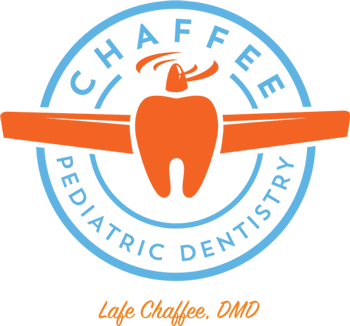As parents, we always want the best for our children, especially when it comes to their health. While we diligently monitor their growth and development, one crucial aspect that often goes unnoticed is dental health. Yes, those pearly whites need attention, too!
Just like adults, children can experience dental problems that can cause discomfort and affect their overall well-being. The good news is that most dental issues in kids are preventable with proper care and regular check-ups.
In this blog post, we will explore some common signs that indicate your child may be experiencing dental issues. We'll also discuss when it's time to schedule a trip to the dentist's office and share helpful tips on how you can help your child maintain strong and healthy teeth.
What are the signs that my child's teeth are having issues?
As a parent, it's important to keep an eye out for any signs that your child's teeth may be having issues. Here are some key indicators to watch for:
1. Tooth sensitivity: If your child complains of pain or discomfort when eating hot or cold foods, it could be a sign of tooth sensitivity. This can indicate issues with the enamel or gums.
2. Persistent bad breath: While occasional bad breath is normal, a persistent foul odor can suggest underlying dental problems such as decay or gum disease.
3. Tooth discoloration: If you notice any changes in the color of your child's teeth, such as yellowing or dark spots, it could indicate cavities or enamel erosion.
4. Swollen or bleeding gums: Healthy gums should appear pink and firm. If they are red, swollen, or bleed easily during brushing, it may be a sign of gingivitis or more advanced gum disease.
5. Difficulty chewing and biting: If your child avoids certain foods due to pain while chewing, this could signal tooth decay or other oral health issues.
6. Jaw pain and headaches: Dental problems can sometimes manifest as jaw pain and frequent headaches in children.
If you notice any of these signs in your child's oral health, don't hesitate to schedule an appointment with our dentist for a thorough examination and appropriate treatment plan.
When should I take my child to the dentist?
When should I take my child to the dentist? This is a common question that many parents ask themselves. It's important to remember that dental health is just as important for children as it is for adults. Regular dental check-ups can help detect any potential issues early on and prevent them from becoming more serious problems.
One sign that your child may need to see a dentist is if they are experiencing tooth pain or sensitivity. If your child complains of any discomfort while eating or drinking, it could be a sign of cavities or other dental issues. Another indication that a trip to the dentist may be necessary is if you notice any discoloration or staining on your child's teeth. This could be caused by poor oral hygiene habits or even underlying medical conditions.
Additionally, if your child has persistent bad breath, it may be worth scheduling an appointment with their dentist. Bad breath can indicate gum disease or other oral infections that require professional treatment.
It's also important to take your child to the dentist regularly for routine check-ups and cleanings. Most dentists recommend scheduling these appointments every six months in order to maintain optimal oral health.
Taking your child to the dentist at the first signs of any dental issues is crucial in preventing further complications down the line. Regular check-ups and good oral hygiene practices at home are key in keeping their smiles healthy and bright!
How can I prevent my child from having dental problems?
Preventing dental problems in children is crucial for their overall oral health and well-being. By taking proactive measures, you can significantly reduce the chances of your child experiencing dental issues. Here are some tips on how to prevent your child from having dental problems:
- Start Early: Begin practicing good oral hygiene habits as soon as your child's first tooth erupts. Use a soft-bristled toothbrush and a small amount of fluoride toothpaste to gently clean their teeth.
- Teach Proper Brushing Technique: Show your child how to brush their teeth properly, using gentle circular motions on all surfaces of the teeth and along the gumline. Encourage them to brush for at least two minutes twice a day.
- Monitor Their Diet: Limit sugary snacks and drinks in your child's diet, as these can contribute to tooth decay. Instead, offer healthier alternatives like fruits, vegetables, and dairy products that promote strong teeth.
- Regular Dental Visits: Schedule regular check-ups with your dentist every six months or as recommended by their dental professional. These visits allow early detection of any potential issues and provide preventive treatments such as fluoride applications or sealants.
- Fluoride Treatment: Talk to your dentist about fluoride treatment options for your child's developing teeth if needed. Fluoride helps strengthen enamel and prevents cavities.
- Sealants: Dental sealants are thin protective coatings applied to the chewing surfaces of molars to act as barriers against bacteria and plaque buildup, reducing the risk of cavities in these vulnerable areas.
- Encourage Healthy Habits: Promote healthy habits like drinking water instead of sugary beverages, avoiding thumb-sucking or pacifier use after age three (if applicable), and discouraging nail biting, which can damage both teeth and gums.
By following these preventive measures consistently, you can set up a solid foundation for your child's lifelong oral health journey! Remember that each child is unique, and it's essential to consult with your child's dentist for personalized dental care. Call us to learn more.
